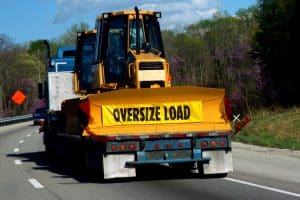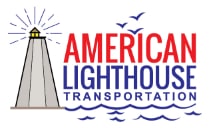 Transporting oversize loads is a challenging task that requires careful planning and adherence to regulations. One of the crucial aspects of transporting heavy loads is obtaining the necessary permits. In this comprehensive guide, we will explore the ins and outs of heavy haul permits, their importance, and the regulations involved in transporting oversize loads. From understanding what heavy haul permits are to the common items that require permits, we’ve got you covered. Let’s dive in!
Transporting oversize loads is a challenging task that requires careful planning and adherence to regulations. One of the crucial aspects of transporting heavy loads is obtaining the necessary permits. In this comprehensive guide, we will explore the ins and outs of heavy haul permits, their importance, and the regulations involved in transporting oversize loads. From understanding what heavy haul permits are to the common items that require permits, we’ve got you covered. Let’s dive in!
What Are Heavy Haul Permits?
Heavy haul permits, also known as oversize permits, are documents issued by state or local authorities that allow the transportation of oversized or overweight loads on public roads. These permits specify the dimensions and weight of the load, as well as the approved travel route. They may also include restrictions on the time of day or day of the week when the load can be transported.
The Importance of Heavy Haul Permits
Heavy haul permits are essential for two primary reasons: safety and infrastructure protection. Firstly, oversized loads can pose significant safety risks if not properly secured or transported. By requiring permits, authorities can ensure that the load will be transported safely, minimizing the potential for accidents or damage. Secondly, heavy loads can cause substantial damage to roads and infrastructure, especially if their weight is not properly distributed. Heavy haul permits help protect the roads by ensuring that the load will be transported in a way that minimizes wear and tear on the road.
How to Obtain Heavy Haul Permits
To obtain heavy haul permits, truckers and trucking companies can either order them directly from the state or through permit services. Ordering permits from the state or state’s website usually does not require a service fee. However, working with permit services can provide expertise in navigating the state’s rules and regulations, albeit with an additional service fee. Each state has its own permit fees and service fees, so it’s important to familiarize yourself with the specific requirements of the state you will be operating in.
Commonly Hauled Oversize Items
Numerous items fall under the category of oversize loads, requiring heavy haul permits for transportation. Some of the most commonly hauled oversize items include construction equipment like cranes, front loaders, and backhoes, prebuilt homes, containers, bridge beams, generators, windmill propellers, industrial equipment, and solar panels. It is important to note that regulations for transporting different types of oversize loads may vary, so it’s crucial to research and comply with the specific requirements for each type of load.
Escort Requirements for Oversize Loads
In addition to obtaining permits, oversize loads often require escorts during transportation. Escorts ensure the safe passage of the load and help mitigate potential risks. Each state has its own escort requirements, which may include the use of pilot cars or police escorts. Civilian escorts, contracted by the state, are commonly used for leading oversize loads, while police escorts are reserved for particularly important or sensitive hauls. Escorts, whether civilian or police, play a crucial role in checking for low structures that could potentially damage the load and ensuring the safety of the transportation process.
Annual Transport Permits
In addition to single-trip permits, some states offer annual transport permits, also known as “blanket” permits. These permits are issued for a 12-month period and cover multiple trips within the specified timeframe. Annual transport permits are beneficial for companies that frequently transport oversize loads within a specific state or region. They allow for more flexibility in scheduling trips and can often result in cost savings compared to obtaining individual single-trip permits for each transport. However, it’s important to note that annual permits may have their own limitations and restrictions, depending on the state and the specific dimensions or weight range covered by the permit.
Oversize and Overweight Load Parameters
Permits for oversize and overweight loads are typically required when the load exceeds certain dimensions or weight limits. The common parameters for requiring permits include overall height exceeding 13’6″, overall weight exceeding 80,000 pounds, overall width exceeding 8’6″, and trailer length exceeding 48′. However, it’s crucial to understand that these parameters can vary from state to state. Additional or different requirements may be imposed by individual states, and the charges for permits can also vary. It’s important to stay updated with the regulations of the specific states you will be operating in and comply with their requirements.
Local Regulations and Escort Requirements
When hauling heavy loads, it’s essential to be aware of the local regulations and laws in the areas where you will be traveling. Each state, county, or municipality may have its own set of rules and regulations regarding oversize loads. These regulations may include specific requirements for escort vehicles or pilot cars, which are often used to guide and assist in the transportation of oversize loads. It’s crucial to thoroughly research and understand the local regulations to ensure compliance and a smooth transportation process.
Consequences of Transporting Heavy Loads Without Permits
Transporting oversize loads without the proper permits can result in severe consequences. Violations can lead to fines, penalties, impoundment of the load, and even arrest. The specific penalties vary depending on the state or municipality where the violation occurs. To avoid these penalties and ensure legal and safe transportation, it is imperative to obtain the necessary permits before transporting any oversize or overweight load.
Transporting oversize loads requires careful planning, adherence to regulations, and obtaining the appropriate permits. Heavy haul permits play a crucial role in ensuring the safety of transportation and protecting the roads and infrastructure. By understanding the regulations, obtaining the necessary permits, and complying with local requirements, truckers and trucking companies can safely and legally transport oversize loads. Stay informed, follow the guidelines, and ensure a smooth and successful transportation process.
Remember, when it comes to transporting oversize loads, compliance is key. Stay safe, follow the rules, and obtain the necessary permits to ensure a successful and hassle-free journey.
Contact Us (859) 824-4177 for more information or to get a quote!
—
 About American Lighthouse Transportation
About American Lighthouse Transportation
American Lighthouse Transportation has been serving shippers with honesty and integrity throughout the United States, since 1998. You can depend on our experienced and knowledgeable management team, drivers, and support for all your shipping needs. We communicate effectively to make sure your shipment arrives safely, accurately, and on-time! You can count on us for personalized customer service, expert guidance, accurate anticipation of potential setbacks, and possible workarounds and solutions.